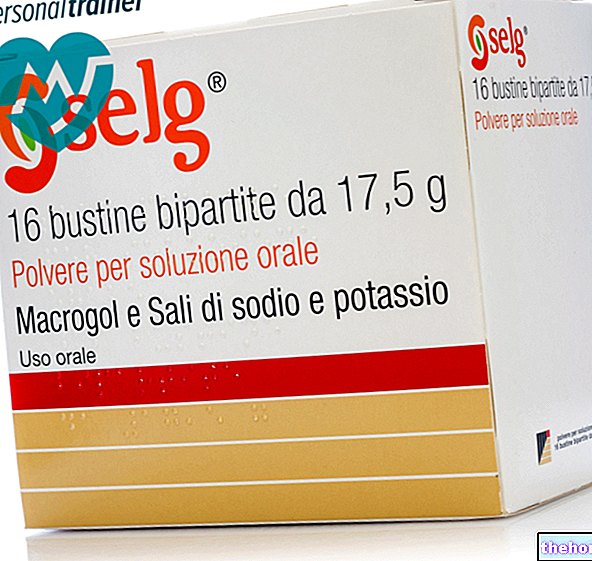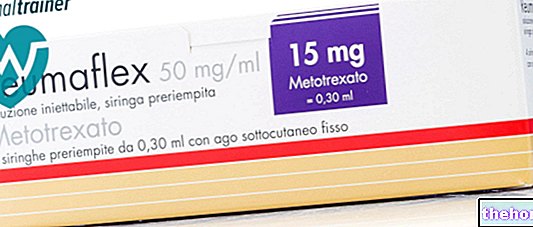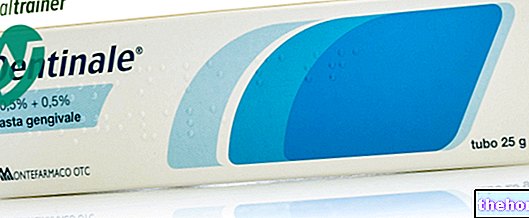Active ingredients: Zinc sulfate (Zinc sulfate monohydrate)
ZINC SULFATE IDI “200 mg tablets” - 30 tablets
Why is Zinc Sulphate used - Generic drug? What is it for?
THERAPEUTIC INDICATIONS
- Zinc deficiency therapy and prophylaxis during pregnancy and lactation. Enteropathic acrodermatitis.
- Adjuvant in the treatment of wounds and burns.
- Adjuvant in the treatment of acne vulgaris.
Contraindications When Zinc Sulfate Should Not Be Used - Generic drug
Hypersensitivity to the active substance or to any of the excipients or to closely related substances from a chemical point of view.
Precautions for use What you need to know before taking Zinc sulfate - Generic drug
No dose reductions were necessary, either in geriatric patients or in those with excretory organ insufficiency.
KEEP THE MEDICINAL PRODUCT OUT OF THE REACH OF CHILDREN.
Interactions Which drugs or foods can modify the effect of Zinc sulfate - Generic drug
The absorption of zinc sulphate is inhibited by the simultaneous intake of food. Therefore the drug must be taken on an empty stomach, with liquids, at least one hour before meals.
The simultaneous administration of medicines based on cimetidine, ranitidine or gastric secretion inhibitors is not recommended as they can significantly reduce the absorption of zinc.
The simultaneous intake of iron-based supplements should be avoided as the latter affects the intestinal absorption of zinc. Zinc sulphate can form complexes with tetracyclines. To avoid interference with the absorption of these substances, it is important to administer the products after at least one "hour.
Warnings It is important to know that:
Even if therapeutic dosages of zinc sulfate have been administered for periods longer than one year, without any adverse effects of any kind having emerged, prolonged administration of zinc compounds can lead to copper deficiency (hypocupremia). In order to avoid potential accumulation phenomena and toxicity due to zinc-induced hypocupremia, the prolonged administration of zinc sulphate should be carried out by periodically checking the zinc. a genetic defect in intestinal absorption of the trace element, it is unlikely that toxic or accumulation phenomena can occur.
At the therapeutic dose, there are no toxic effects on the fetus.
Since zinc is excreted in breast milk, the intake of zinc sulphate should be reserved for cases of proven Zn2 + deficiency in the mother. Plasma levels of zinc should be evaluated weekly and if they are less than 20 µmol / ll "breastfeeding can continue .
Dosage and method of use How to use Zinc sulfate - Generic drug: Dosage
The product must be taken on an empty stomach, at least one hour before meals, with liquids. In the prophylaxis of deficiency during pregnancy and lactation: 1-2 tablets per day
In enteropathic acrodermatitis: 10mg / kg / day
In wound and burn therapy: 2-3 tablets per day
In acne vulgaris: 2-4 tablets per day.
There is no need to reduce the dosage in geriatric patients or patients with renal insufficiency.
Overdose What to do if you have taken an overdose of Zinc sulfate - Generic drug
Symptoms of overdose are numbness, lethargy and increased serum amylase and lipase levels.
Overdose of zinc sulphate can result in erosions of the gastrointestinal tract.
In case of accidental or voluntary overdose, gastric lavage and induction to vomiting are therefore contraindicated.
Instead, the administration of milk, egg white, charcoal or chelating agents such as EDTA is recommended.
Side Effects What are the side effects of Zinc Sulfate - Generic Drug
The most frequent side effects are represented by gastrointestinal disturbances (nausea, dyspepsia, abdominal pain, vomiting, diarrhea, gastric irritation, gastritis) of mild to moderate entity.
Compliance with the instructions contained in the package leaflet reduces the risk of undesirable effects.
Notify your doctor or pharmacist of any undesirable effects not described in this leaflet.
Expiry and Retention
Expiry: see the expiry date indicated on the package.
The validity period is intended for the product in intact packaging, correctly stored.
Warning: do not use the product after the expiry date indicated on the package.
Storage: There are no special storage instructions.
Contents of the pack and other information
Each tablet contains:
- Active ingredient: Zinc sulphate monohydrate 124.8 mg equivalent to 200 mg of Zinc Sulphate heptahydrate (equal to 45.5 mg of Zinc)
- Excipients: Lactose, Rice starch, Magnesium stearate.
PHARMACEUTICAL FORM AND CONTENT
30 tablets for oral use.
PHARMACOTHERAPEUTIC CATEGORY
Mineral supplements.
Source Package Leaflet: AIFA (Italian Medicines Agency). Content published in January 2016. The information present may not be up-to-date.
To have access to the most up-to-date version, it is advisable to access the AIFA (Italian Medicines Agency) website. Disclaimer and useful information.
01.0 NAME OF THE MEDICINAL PRODUCT
ZINC SULFATE IDI
02.0 QUALITATIVE AND QUANTITATIVE COMPOSITION
Each tablet contains:
active principle:
Zinc Sulphate Monohydrate 124.8 mg
equivalent to 200 mg of Zinc Sulphate heptahydrate.
03.0 PHARMACEUTICAL FORM
Tablets for oral use
04.0 CLINICAL INFORMATION
04.1 Therapeutic indications
Deficiency therapy and prophylaxis during pregnancy and breastfeeding.
Enteropathic acrodermatitis.
Adjuvant in the treatment of wounds and burns
Adjuvant in the treatment of acne vulgaris
04.2 Posology and method of administration
In the prophylaxis of deficiency during pregnancy and breastfeeding: 1-2 tablets / day;
In enteropathic acrodermatitis: 10mg / kg / day;
In the treatment of wounds and burns: 2-3 tablets / day
In acne vulgaris, 2-4 tablets / day are indicated.
To ensure a significant absorption of zinc, the product must be administered fasting, at least one hour before meals, with liquids.
04.3 Contraindications
Hypersensitivity to the active substance to any of the excipients, or to closely related substances from a chemical point of view.
04.4 Special warnings and appropriate precautions for use
Even if therapeutic dosages of zinc sulfate have been administered for periods longer than one year, without any adverse effects of any kind having emerged, prolonged administration of zinc compounds can lead to copper deficiency (hypocupremia). In order to avoid potential phenomena of accumulation and toxicity due to zinc-induced hypocupremia, prolonged administration of zinc sulphate should be carried out with periodic monitoring of zinc. On the other hand, in enteropathic acrodermatitis, since the zinc deficiency in the body is mediated by a genetic defect in the intestinal absorption of the trace element, it is unlikely that toxic phenomena or accumulation can occur.
No dose reductions were necessary, either in geriatric patients or in those with excretory organ insufficiency.
04.5 Interactions with other medicinal products and other forms of interaction
The absorption of zinc after administration of zinc sulphate is inhibited by the simultaneous intake of food. Therefore the drug must be taken fasting, with liquids, at least one hour before meals.
The administration of substances capable of antagonizing gastric acid secretion has been shown to influence the absorption of zinc ion. In 16 healthy volunteers, oral administration of cimetidine or ranitidine, at a dose of 1g / day and 300mg, respectively. / day for 3 days before taking 220mg of zinc sulphate orally induced the following decrease in the bioavailability of the trace element:
The simultaneous administration of iron ion can antagonize the intestinal absorption of zinc. In subjects who take pharmacological supplements of both zinc and iron, it will therefore be advisable to space out the administration of the two principles during the day.
Zinc sulfate can form complexes with tetracyclines. To avoid interference with the absorption of the products, it is important to administer the two drugs at least one hour apart.
04.6 Pregnancy and lactation
Animal toxicology data on reproduction have shown that the ion, up to 4 mg / kg / day (equivalent to double the maximum dose used on humans), is devoid of toxic effects on the fetus.
In pregnant women with Wilson's disease, zinc sulphate was used for the entire duration of gestation, at a dose of 600 - 800 mg / day.
A woman suffering from enteropathic acrodermatitis carried out two pregnancies, taking 300 mg / day of zinc sulfate from the first trimester and for most of the pregnancy period, increasing the intake to 450 mg / day in the last month of gestation.
Since zinc is excreted in breast milk, the intake of zinc sulphate during lactation should be reserved for cases of proven Zn2 + deficiency in the mother. In this case, by evaluating weekly that the plasma levels of zinc during the period of administration of the drug do not exceed the value of 20 mcM / L, breastfeeding can be continued.
04.7 Effects on ability to drive and use machines
The intake of Zinc Sulphate IDI does not alter the driving ability or the use of other machinery.
04.8 Undesirable effects
Mild to moderate gastrointestinal disturbances (nausea, dyspepsia, abdominal pain, vomiting, diarrhea, gastric irritation, gastritis) have been reported.
The use of zinc sulphate, at a dose of 300 - 1200 mg / day in patients with Wilson's disease, for up to three years of therapy, did not induce undesirable effects.
Even in patients with enteropathic acrodermatitis, the long-term intake of 4.4 - 8.8 mg / kg / day of zinc sulphate did not give rise to symptoms of toxicity.
04.9 Overdose
In humans, accidental ingestion of 12 g of zinc sulphate, a dose 20 times higher than the maximum daily therapeutic dose, induced numbness, lethargy and increased serum amylase and lipase levels.
The overdose of zinc sulphate can give rise to erosions of the gastrointestinal tract: in the event of accidental or voluntary overdose, gastric lavage and induction of vomiting are therefore contraindicated.
The administration of milk, egg white, charcoal or chelating agents such as EDTA is recommended.
05.0 PHARMACOLOGICAL PROPERTIES
05.1 Pharmacodynamic properties
Pharmacotherapeutic group: mineral supplements
Zinc performs several important functions in the body, which can be summarized as follows:
as a coenzymatic factor of over 90 metallo-enzymes it intervenes in protein synthesis, cell division, in the metabolism of carbohydrates, lipids and nucleic acids;
stabilization function of plasma membranes through the inhibition of ATPase and phosphorylase, the release of histamine from basophils and the peroxidation of membrane lipids;
immunomodulation function at the thymic, granulocyte and lymphocyte level.
Zinc deficiency gives rise to numerous types of dermopathies: scaly-pustular peri-orificial lesions, pseudo-seborrheic manifestations of the face and psoriasiform manifestations of the trunk and limbs, bullous-pustular periungual lesions, alopecia, which may be associated with impaired general condition, diarrhea, stomatitis, increased susceptibility to infections, changes in taste and smell, alterations in wound healing.
Clinical studies have shown a statistically significant efficacy of zinc sulphate therapy in various clinical conditions underlying a deficiency of the trace element:
enteropathic acrodermatitis, growth retardation, surgical wounds, ulcers of the lower limbs, dermopathies in subjects with alcoholic cirrhosis and Crohn's disease, disorders of sexual function and taste in patients with chronic renal insufficiency, male infertility, recurrent aphthous ulcers of the oral cavity, acute zinc deficiency syndrome with neuropsychiatric expressiveness.
Zinc deficiency has also been observed in the generalized pustular form of psoriasis, pressure ulcers, bullous pemphigoid, alopecia areata, type I and II diabetes mellitus, Crohn's disease, burns, after some surgery and in sickle cell anemia.
The administration of zinc induces a negative balance of copper. This feature constitutes the pathophysiological basis of the treatment of hepatolenticular degeneration.
Recent studies have shown that zinc treatment is a valid alternative to penicillamine in the treatment of Wilson's disease.
05.2 Pharmacokinetic properties
In "man" zinc absorption occurs mainly in fasting. Bioavailability was studied in a cross-over study on 18 healthy volunteers and the values of Area under the plasma concentration curve (AUC 0-12) obtained were 17.1 ± 2.3 mg / L x h.
The absorption of zinc is influenced by food intake, in fact it has been shown that the intake of 200mg of zinc sulphate induces an increase in serum concentrations only if the drug is taken on an empty stomach.
Following oral administration of 200 mg of zinc sulphate in the fasted state, the plasma peak of zinc is reached after 2 hours and an increase in zinc of 22 micromol / l is obtained. Zinc is absorbed in the gastrointestinal tract and distributed throughout the body. In the blood, 75-80% of the trace element is found in erythrocytes. Serum zinc levels under background conditions vary between 10.71 and 19.89 micromol / l. As regards the binding of the trace element to plasma proteins, 80-85% of zinc is bound to albumin, 5-15% to a2-macroglobulin and small quantities are bound to transferrin. 2% of serum zinc is free or bound to simple amino acids.
The zinc half-life was approximately 6 hours after oral administration of a 200mg tablet.
The excretion of zinc occurs in the measure of 70 - 75% through the renal emunctory and for 20 - 25% through the gastrointestinal route, mainly through pancreatic secretion.
05.3 Preclinical safety data
In mice treated with ZnCl2 intraperitoneally, the LD50 was found to be 28 mcg / g of weight. Regarding the oral route of administration, Zn2 + ion doses of 240mg / kg were found to be lethal in sheep. Signs of subacute and chronic toxicity were detected with zinc intakes of 50 mg / kg per os, a dosage 25 times higher than the maximum used in human subjects.
In rats, treated orally with a compound of L-carnosine and zinc, the LD50 was greater than 1200 mg / kg / day (268.8 mg / kg / day of Zn2 + equivalent to a dosage of zinc sulphate about 140 times higher than the maximum therapeutic daily dose in humans).
In mice treated with zinc chloride intraperitoneally, teratogenic effects on the skeletal growth of the fetuses appeared starting from the dose of 25 mg / kg. In sheep toxic effects on the mother and fetus were highlighted with a "zinc intake equal to 20 mg / kg / day, while they were completely absent in the group of animals that had eaten a quantity of zinc of 4 mg / kg / day. Zinc was found to have no mutagenic or carcinogenic effects.
06.0 PHARMACEUTICAL INFORMATION
06.1 Excipients
Lactose, Rice starch, Magnesium stearate.
06.2 Incompatibility
None known.
06.3 Period of validity
36 months.
06.4 Special precautions for storage
There are no special storage precautions.
06.5 Nature of the immediate packaging and contents of the package
Cardboard box with 30 tablets in blister.
06.6 Instructions for use and handling
No particular.
07.0 MARKETING AUTHORIZATION HOLDER
IDI FARMACEUTICI S.r.L. - Via dei Castelli Romani, 83-85 - Pomezia (RM) - Italy
08.0 MARKETING AUTHORIZATION NUMBER
034684011 / G
09.0 DATE OF FIRST AUTHORIZATION OR RENEWAL OF THE AUTHORIZATION
June 9, 2000
10.0 DATE OF REVISION OF THE TEXT
-----




























